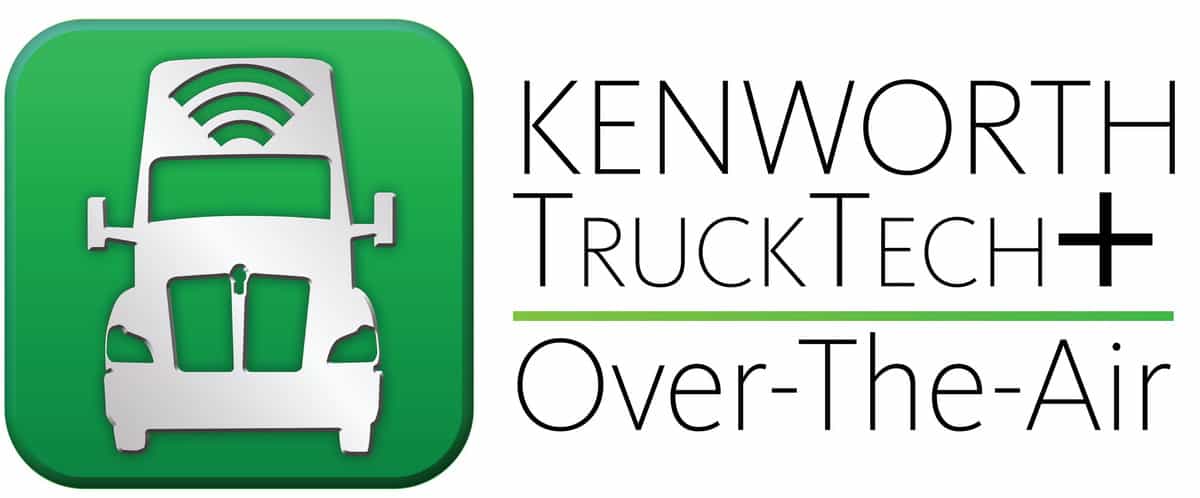Kenworth Truck Co. is adding over-the-air updates to its telematics program late this year, finally satisfied the technology will do no harm.
All major truck manufacturers offer over-the-air software updates. Kenworth General Manager Kevin Baney disagreed the Paccar Inc. (NASDAQ: PCAR) subsidiary was late to offer the feature that helps keep trucks on the road instead of in maintenance bays for software reprogramming.
“Our philosophy is not to release anything unless it’s safe,” Baney said October 27 at the North American Commercial Vehicles Show. “Our customers appreciate that we’ve taken the time to get this right.”
Kenworth engaged computer hackers to try and corrupt software downloads to its engines. “We worked with them until we were confident we had a robust and safe practice,” Baney said.

Kenworth Class 8 trucks equipped with 2017 or later model year Paccar MX-13 and Paccar MX-11 engines can receive software updates remotely. Select customers can order the feature as part of the TruckTech+ telematics program in December.
It will roll out nationally in 2020. TruckTech+ Over the Air will be included for two years with a new truck and renewable as a subscription after that.
Baney, who became general manager August 1, addressed a host of issues in a wide-ranging question-and-answer session with reporters.
Production cuts
A 6% to 8% production cut mentioned during Paccar’s third-quarter earnings call will lead to the layoff of about 100 employees at its Chillicothe, Ohio, assembly plant, Baney said. Most of the downsizing was handled through attrition.
Beginning November 1, Kenworth will build 150 trucks a day in Chillicothe, down from 170, Baney told FreightWaves.
Kenworth is the last of the major truck manufacturers to adjust production downward.
Daimler Trucks North America laid off 900 workers at two plants in North Carolina in mid-October.
Navistar International Corp. cut production at plants in Ohio and Mexico by 15% after adding the same amount of production a year ago.
Volvo Group, which includes Volvo Trucks North America and Mack Trucks, plans two down weeks before the end of the year. But a recently concluded 12-day strike by the United Auto Workers may change those plans.
Share growth
Kenworth is carefully managing its order backlog, which Paccar said accounted for 36% of the industry’s total order bank. Paccar counts orders placed with its Peterbilt Motors’ subsidiary in that number.
Kenworth holds a 15% share of the U.S. market, up from 14.8%. More growth would have been possible had Kenworth been able to build more trucks earlier this year. It absorbed some T-680 capacity from Mexico when customers pulled ahead purchases to beat tougher emissions standards. But the extra capacity became available as orders began to cool in the May-to-August period.
Further share growth is possible based on new fleet accounts won in the last year, he said.
One of those was a 350-truck order from Amazon.com Inc. (NASDAQ: AMZN) that it will brand power units for its expanding logistics operation.
“We’ll see where it goes from there,” Baney said.
Alternative propulsion
On non-diesel power projects, Baney said Kenworth:
- Has five of the 10 hydrogen-powered fuel cell Class 8 electric trucks it is producing in a partnership with Toyota in various build stages. The partnership could expand to provide fuel cell trucks that Toyota would sell in Japan, but no decision has been made yet.
“Right now the focus is on developing and testing the first 10 trucks,” Baney said.
- Hears from fleets they are confident fuel-saving connected vehicle platooning from Peloton Technology works. But they are leery that electronically linking two or more trucks can be consistently applied..
“We continue to work through it, but is probably is getting outpaced by other developments,” he said.
- Will offer natural gas-powered trucks as long as customers want them. Daimler Trucks said October 25 it is no longer investing in natural gas because it is derived from fossil fuels and is only a transition to zero-emission vehicles.
“We will build what our customers need until they don’t need it,” he said. “UPS is still
buying high volumes of natural gas trucks.”
But preferences change. California’s requirement that a percentage of a fleet be emissions-free by 2024 could see natural gas follow the path of hybrid systems, which were popular a decade ago.







